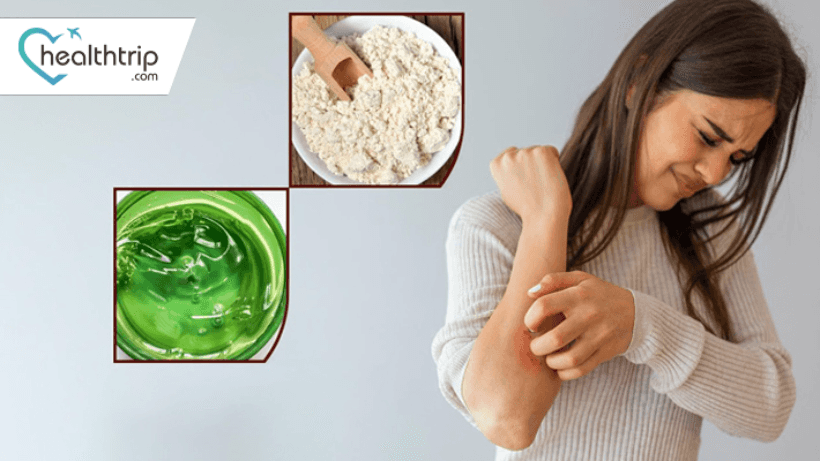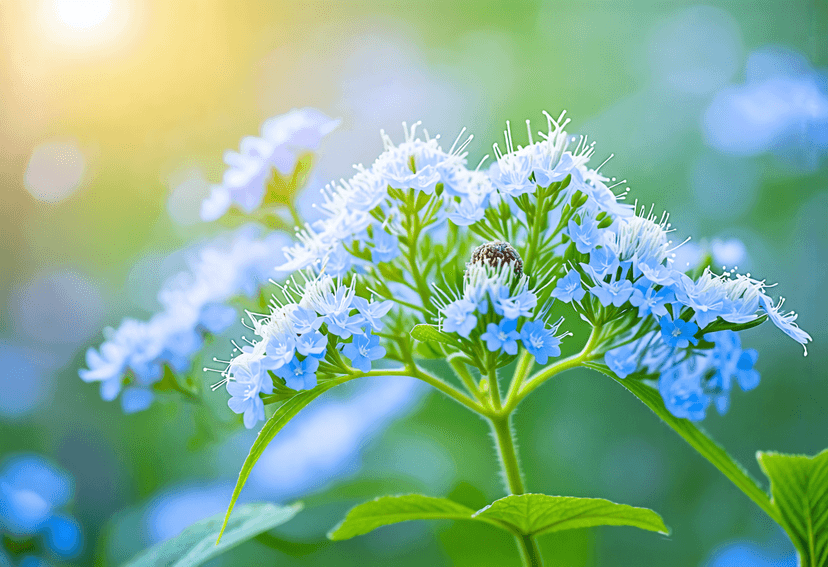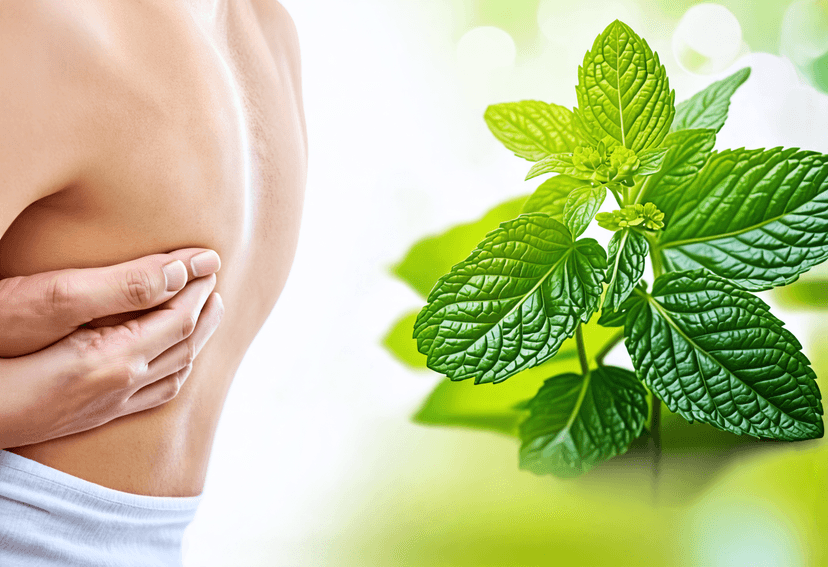
Natural Home Remedies for Allergies: Soothe Symptoms Naturally
22 May, 2023
Allergies can be an annoying and uncomfortable experience for many people. Whether you are dealing with seasonal allergies or a reaction to something in your environment, the symptoms can range from itchy eyes and a runny nose to more severe reactions like hives and difficulty breathing. While over-the-counter medications can be effective at treating these symptoms, there are also many natural home remedies that can help soothe allergies without relying on drugs.
1. Neti Pot:
A neti pot is a simple and effective tool used to clear the nasal passages and alleviate symptoms of allergies, sinus congestion, and colds. It's a centuries-old practice rooted in Ayurvedic medicine. To use a neti pot, you'll need a saline solution (mixing distilled water with salt), which helps to gently cleanse and moisturize the nasal passages.
Most popular procedures in India
How to Use:
- Fill the neti pot with the saline solution.
- Stand over a sink and tilt your head to the side, so one nostril is lower than the other.
- Insert the spout of the neti pot into the upper nostril and pour the saline solution.
- The solution will flow through your nasal passages and come out of the lower nostril.
- Blow your nose gently to clear any remaining solution.
- Repeat the process on the other side.
Using a neti pot can provide relief from nasal congestion, remove irritants, and promote better breathing. Make sure to use distilled or sterilized water to avoid any risk of infection.
Wellness Treatments
Give yourself the time to relax
Lowest Prices Guaranteed!

Lowest Prices Guaranteed!
2. Honey:
Honey is often touted for its natural sweetness, but it also has potential benefits for allergy sufferers. Raw honey, in particular, is believed to contain trace amounts of pollen from local plants. Consuming this honey may help your body build a tolerance to the specific allergens present in your environment.
How to Use:
- Consume a teaspoon of locally sourced raw honey daily.
- You can also add honey to warm water, tea, or incorporate it into recipes.
Keep in mind that scientific evidence supporting honey's effectiveness in managing allergies is limited. While it may offer some relief for some individuals, it's important to consult a healthcare professional before making it a part of your allergy management plan, especially if you have allergies to bee products.
Please note that if you have severe allergies or are at risk of anaphylactic reactions, avoid using honey as it can potentially trigger allergic responses.
3. Apple Cider Vinegar:
Apple cider vinegar is a popular natural remedy that is believed to help alleviate allergy symptoms by reducing inflammation and breaking down mucus. It's important to note that while some people find relief from using apple cider vinegar, scientific evidence supporting its effectiveness for allergies is limited.
How to Use:
- Mix 1-2 tablespoons of apple cider vinegar with a glass of water.
- Add a tablespoon of honey for additional benefits.
- Drink this mixture daily.
While apple cider vinegar may offer some relief for mild allergy symptoms, it's crucial to be cautious. The acidity of vinegar can be harsh on your teeth and stomach lining, so it's best to dilute it and consume it in moderation. If you experience any adverse reactions or discomfort, discontinue use and consult a healthcare professional.
As with any natural remedy, it's recommended to consult your healthcare provider before incorporating apple cider vinegar into your allergy management routine.
4. Essential Oils:
Essential oils like lavender, peppermint, and eucalyptus have been used for their potential medicinal properties, including easing allergy symptoms. However, it's important to use essential oils cautiously, as they are concentrated extracts and can cause irritation or allergic reactions in some individuals.
How to Use:
- Add a few drops of essential oil to a diffuser to disperse the aroma into the air.
- Dilute essential oils with a carrier oil (such as coconut or almond oil) and apply topically to the chest or temples. Do a patch test first to check for any adverse reactions.
- Steam inhalation: Add a few drops of essential oil to a bowl of hot water, cover your head with a towel, and inhale the steam. Be cautious not to get too close to the hot water.
It's crucial to research and choose high-quality essential oils from reputable sources. If you have allergies, asthma, or sensitive skin, consult with a healthcare professional before using essential oils.
5. Steam:
Steam can provide immediate relief for allergy symptoms like congestion and sinus pressure. It helps to loosen mucus and soothe irritated nasal passages, making it easier to breathe.
How to Use:
- Boil a pot of water.
- Remove the pot from the heat source.
- Place a towel over your head and lean over the pot.
- Inhale the steam for about 5-10 minutes.
- You can enhance the experience by adding a few drops of essential oil to the water.
Ensure the steam is not too hot to avoid burning your face. This method is particularly effective for providing temporary relief, especially when dealing with nasal congestion and sinus discomfort.
6. Probiotics:
Probiotics are beneficial bacteria that can support your gut health and immune system. Some research suggests that a healthy gut microbiome can help regulate the immune response and reduce inflammation, potentially alleviating allergy symptoms.
How to Use:
- Incorporate fermented foods into your diet, such as yogurt, kefir, sauerkraut, kimchi, and kombucha.
- Consider taking a high-quality probiotic supplement after consulting with a healthcare professional.
While probiotics can have positive effects on overall health, more research is needed to fully understand their role in managing allergies. If you have existing health conditions or are on medication, consult your healthcare provider before making significant changes to your diet or taking supplements.
7. Air Purifiers:
Air purifiers can help remove allergens like pollen, dust, and pet dander from indoor spaces, improving air quality and reducing allergy symptoms.
How to Use:
- Choose a high-quality air purifier appropriate for your room size.
- Place the air purifier in areas where you spend the most time, such as your bedroom or living room.
Air purifiers can provide relief for indoor allergies, but they are most effective when combined with other allergy management strategies. Regular cleaning and filter replacement are important for optimal performance.
8.Exercise:
Regular physical activity can strengthen the immune system and reduce inflammation, potentially leading to better allergy management. However, choose exercise environments that minimize exposure to allergens like pollen.
How to Use:
- Engage in regular moderate exercise indoors.
- If exercising outdoors, choose times when pollen counts are lower, such as early morning or late afternoon.
While exercise is generally beneficial, some individuals with severe allergies might experience worsened symptoms during high pollen seasons. Consult with a healthcare provider to determine the best exercise routine for your specific situation.
9. Quercetin:
Quercetin is a natural plant pigment known as a flavonoid that is found in various fruits, vegetables, and grains. It is renowned for its potential anti-inflammatory and antioxidant properties, which have led to its exploration as a potential remedy for managing allergy symptoms. Quercetin is believed to have the ability to inhibit the release of histamine and other inflammatory compounds that contribute to allergic reactions.
How to Use:
- Incorporate quercetin-rich foods into your diet: Foods such as apples, berries (like blueberries and cranberries), citrus fruits (like oranges and grapefruits), onions, spinach, kale, and red grapes are good sources of quercetin.
- Consider quercetin supplements: Quercetin supplements are available in various forms, such as capsules or tablets. However, it's important to consult a healthcare professional before starting any new supplement regimen.
While quercetin holds promise as a natural remedy for managing allergies, the scientific evidence is still evolving, and its effectiveness can vary among individuals. As with any supplement, it's crucial to consult a healthcare provider before incorporating quercetin supplements into your routine, especially if you have existing health conditions or are taking medications.
It's also important to note that while quercetin-rich foods can provide health benefits, relying solely on supplements may not be as effective as a balanced diet rich in a variety of nutrients. Therefore, focus on incorporating quercetin-rich foods into your meals as part of a well-rounded approach to allergy management.
10. Vitamin C:
Vitamin C, also known as ascorbic acid, is a powerful antioxidant that plays a crucial role in supporting the immune system and promoting overall health. It is commonly associated with boosting the body's ability to fight off infections and reduce inflammation. In the context of allergies, vitamin C's anti-inflammatory properties are believed to provide relief from symptoms like congestion and itching.
How to Use:
- Incorporate vitamin C-rich foods into your diet: Foods such as oranges, strawberries, kiwi, bell peppers, broccoli, and citrus fruits are excellent sources of vitamin C.
- Consider vitamin C supplements: Vitamin C supplements are widely available in various forms, including tablets, capsules, and powders. However, it's recommended to consult a healthcare professional before starting a supplement regimen, especially if you have any existing health conditions or are taking medications.
While vitamin C is generally safe when consumed from food sources, high doses from supplements might cause digestive discomfort for some individuals. Strive for a balanced diet rich in a variety of nutrients, including vitamin C, to support your overall health and potentially alleviate allergy symptoms.
11. Acupuncture:
Acupuncture is an ancient Chinese medical practice that involves inserting thin needles into specific points on the body to stimulate energy flow (qi) and restore balance. It is believed to promote healing and alleviate various health conditions, including allergy symptoms.
How to Use:
- Find a licensed acupuncture practitioner: Look for a qualified and experienced acupuncturist who has a specialization in treating allergies.
- Consult your healthcare provider: Before starting acupuncture, especially if you have existing health conditions or are on medications, it's important to discuss your intentions with your doctor.
Acupuncture for allergies typically involves targeting specific points related to the respiratory system, immune function, and overall well-being. While some individuals report relief from allergy symptoms after acupuncture sessions, the effectiveness can vary from person to person. Scientific research on acupuncture's impact on allergies is ongoing, and it's important to approach it as a complementary therapy under professional guidance.
As with any health-related practices, it's advisable to consult your healthcare provider before trying vitamin C supplements or acupuncture, especially if you have allergies, are on medication, or have other underlying health conditions.
It is also important to talk to your doctor before trying any new natural remedies, especially if you are taking medication or have a pre-existing medical condition. While natural remedies can be effective at reducing allergy symptoms, they should not be used as a substitute for medical treatment.
In conclusion, allergies can be a frustrating and uncomfortable experience, but there are many natural remedies that can help to soothe symptoms without relying on drugs. From neti pots and honey to essential oils and exercise, there are many options to explore. By combining natural remedies with other allergy-reducing strategies, like avoiding allergens and using medication as directed, you can find relief and enjoy a healthier, happier life.
Related Blogs

Revitalize Your Health with Holistic Healing
Experience the best of traditional Ayurvedic healing combined with modern

Transform Your Health with BNH: Expert Care for a Healthier You
Get expert medical care and transform your health with BNH

How to Reduce Sinus Pressure Naturally
Try these natural remedies for sinus pressure relief

The Link Between Allergies and ENT Issues
Understand how allergies affect your ENT health

How to Overcome Sinus Infections Naturally
Learn how to tackle sinus infections without antibiotics

Natural Remedies for Neck Pain Relief
Explore natural remedies that can help alleviate neck pain and




